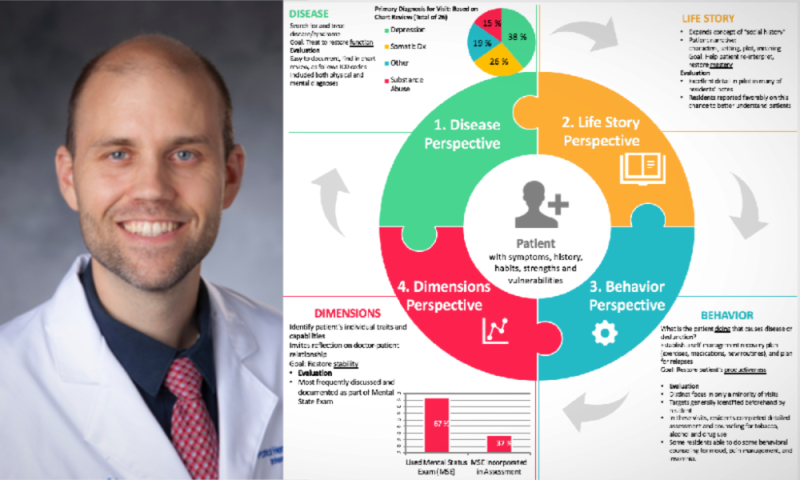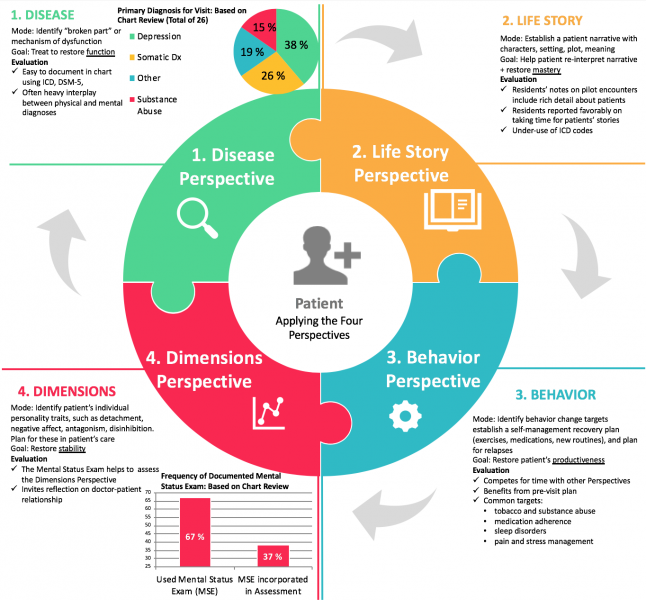
We are proud to show off the work of Dr. Patrick Hemming, an Assistant Professor in Duke General Internal Medicine. Dr. Hemming is the lead investigator of this study about using psychiatry's 4 perspectives in order to better understand the Primary Care patient. This research was accepted as a poster at the upcoming SGIM annual meeting, coming up May 8-11 in Washington, D.C.
TItle:
Reframing the Medical History: Applying Psychiatry’s Four Perspectives to the Primary Care Patient
Needs:
- Better assist + treat patients with mental health disorders.
- Time/training to understand + respond to patients’ perspectives
- Help patients change habits and self-manage chronic diseases
- Focus on patients as individuals+ build trusting partnerships
Objectives:
Adapted the Four Perspectives (published by McHugh and Slavneyin 1982 for psychiatrists) to general medicine to help learners:
- Diagnose and treat patient’s disease/syndrome
- Understand context and incorporate patient’s narrative of their health
- Help patients identify and implement behavioral changes to improve health
- Help patients match strengths and weaknesses to their care and recovery
Setting & Participants:
Concepts first piloted in a one-on-one precepting curriculum
- Senior resident paired with faculty preceptor
- 3-4 complex patients identified for one hour-long shared visit with resident and faculty preceptor
- Pre-clinic didactic to introduce four perspectives
- Post-visit debrief and feedback session
- Post-visit chart review by faculty assessing learning objectives

Discussion:
- Disease is traditional focus of Med Ed + is complemented by other perspectives
- Life Story expands “social history” + gives context to other Perspectives.
- Behavior encourages a new start and anticipates problems
- Dimensions informs longitudinal, relationship-based care, + help with difficult interactions
Impact:
- Patient assessment using four perspectives can be taught to non-psychiatry residents.
- Can be adapted for a variety of other non-psychiatry settings
- Ideally suited to longitudinal teacher-learner-patient relationship.
- Good target for faculty development to help educators understand and applythe Perspectives
References:
McHugh, Slavney. The Perspectives of Psychiatry. Johns Hopkins University Press 1998.
Clark, Cox. Refractory Chronic Pain. PsychiatrClinNorth Am. 2002
Chisolm, Lykestos. Systematic Psychiatric Evaluation: A Step-by-Step Guide to Applying the Perspectives of Psychiatry. Johns Hopkins University Press. 2012